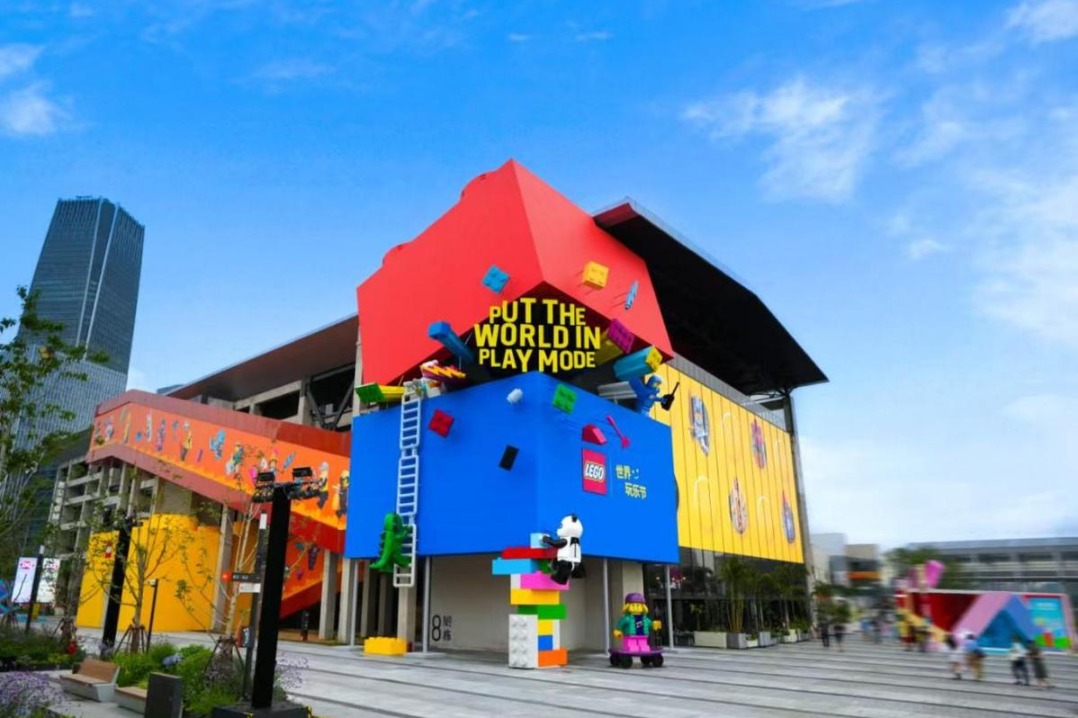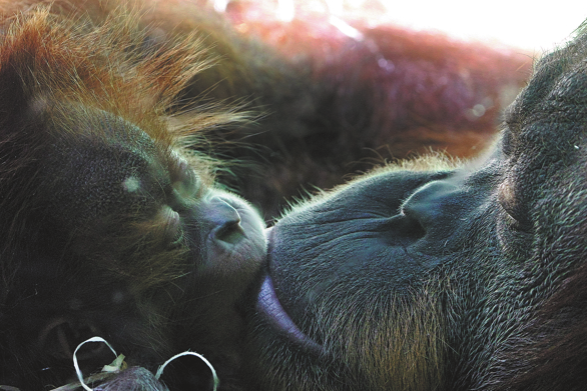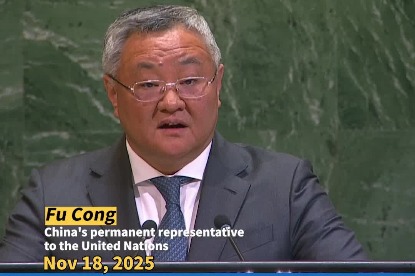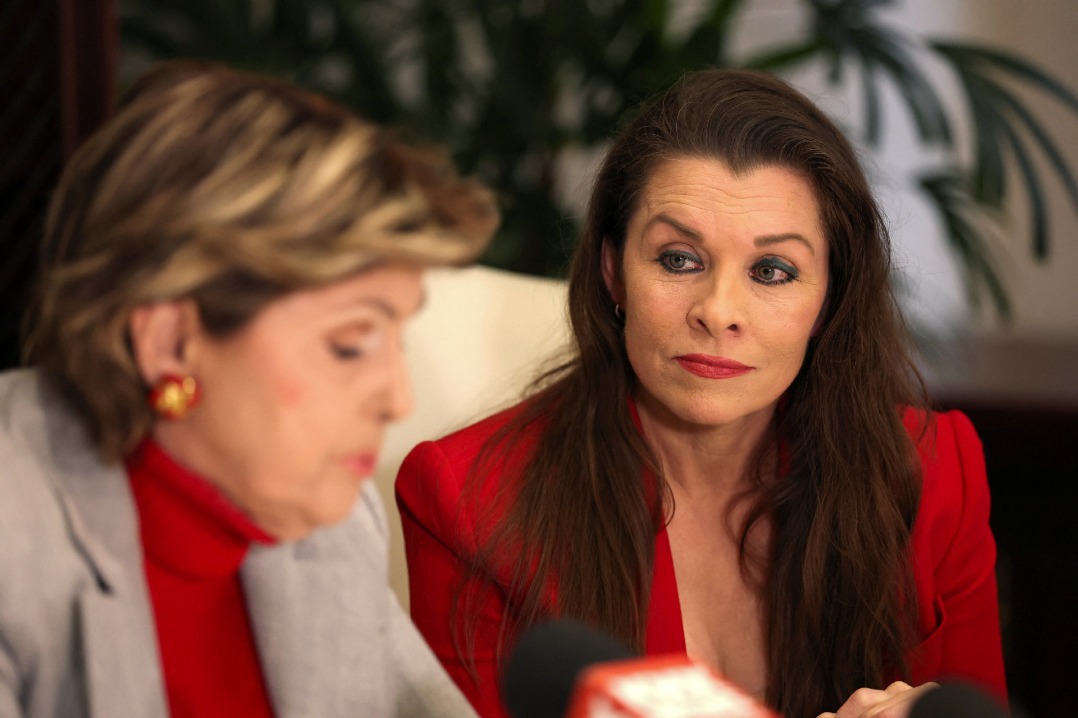Opposition voiced against US resurrecting 'China Initiative'
Lawsuit details scientist's mistreatment and suicide over academic politicization

A recent lawsuit detailed the mistreatment of scientist Jane Wu that led to her suicide under the so-called "China Initiative", a program started by the first Donald Trump administration, ended by the succeeding Joe Biden administration, and is poised to be revived by the second Trump administration.
In the summer, the estate of Jane Wu filed a lawsuit against her former employer Northwestern University, or NU, for mistreating the distinguished scientist that led to her suicide in the summer of 2024.
Wu's tragedy stemmed from an investigation under the "China Initiative", a program that began in 2018 under the Trump administration and ended in 2022 under the Biden administration due to its very low rate of conviction and harmful consequences to those involved.
A vast majority of more than 200 scientists, most of them Chinese Americans, were prosecuted, but only a very small number of them were found guilty under the "China Initiative". Many more were investigated but never charged.
In the process, many scientists' careers and lives were upended, and in Wu's case, life was lost.
However, in September, the US House Committee on Appropriations, in approving Fiscal Year 2026 Commerce, Justice, Science, and Related Agencies Appropriations Act, directed the Department of Justice to reestablish the failed and defunct "China Initiative".
As the executor of Wu's estate, Elizabeth Rao, Wu's daughter, wrote to NU's paper The Daily Northwestern: "A great injustice was done to my mom. My mom's death is a tragic loss for our family, for the Asian American community, and for American science."
According to the lawsuit, Wu was 60 years old when she took her life on July 10, 2024. Born in China, she was a naturalized US citizen since 2000. She lived and worked all of her adult life, nearly 40 years, in the US.
With a PhD from Stanford University, postdoctoral training at Harvard and receiving a tenured position at Washington University at a young age of 38, Wu was actively recruited by the NU in 2005 as a tenured professor with a focus on medical research through her Wu Lab.
Wu had won grants continuously from the National Institutes of Health, or NIH, since 1996 and published world-class medical research results throughout the years. She was considered a great contributor to cancer and neurology research, publishing more than 170 papers.
When Wu was investigated for her ties to China in 2019, she had six grants from NIH totaling $2 million. She was regarded as a star scientist at the NU.
The lawsuit alleged that the NU took all of Wu's $2 million grants away in 2019 while knowing that the investigation "was racially motivated and baseless". The lawsuit said the grants were later redistributed among other researchers, all white males.
From 2019-23, Wu had time and again provided clear evidence that for her interactions in China, she had specifically sought and obtained approval from NU administrators. Five years of investigation did not result in any charges against her.
During the investigation, the NU treated Wu as a security risk. In October 2020, NU expressly prohibited Wu from making any new NIH grant applications.
'Tremendous torture'
Wu expressed her frustration in a letter. "Because science and research are an extremely important part of my life, having been ordered not to participate in any of our major research projects is a tremendous torture and stress to me," Wu wrote in a letter during the investigation.
Wu said the stress led to her retinal stroke in 2020. She lost some vision as a result.
When the "China Initiative" was ended in February 2022, the NU didn't return those NIH grants to Wu from her white male colleagues, the lawsuit said.
In a letter dated Dec 17, 2023 — more than one and half years after the "China Initiative" ended — the NU notified Wu she could resume her work under certain conditions though the investigation had concluded with no findings of any misconduct.
The letter said Wu's research was now considered "inactive" and her salary would be reduced by 10 percent every year — effective Jan 1, 2024, two weeks after the notification — until she gained funding again.
She was also required to get an "exoneration letter" from the NIH. The lawsuit alleged the requirement was impossible to meet because the NIH never accused Wu of anything.
In February 2024, the NU, without explanation, closed part of Wu's lab that was essential for her to receive new grants, the lawsuit alleged, thus crippling her ability to return to funded status.
"The NU then also disassembled, dispersed, and reassigned her research team, the members of which had previously assisted with Dr Wu's work," said the lawsuit. Those punishments drove Wu to depression.
In March 2024, Dimitri Krainc, chair of the Neurology Department, demanded that Wu get at least private foundation grants soon. Wu began to prepare to apply for new NIH grants and also to reclaim her remaining NIH grants that were taken away from her in 2019.
In May 2024, Krainc announced the school would close permanently the remaining Wu Lab with no reason given.
The lawsuit said Wu tried to save her life's research materials in the lab when campus and Chicago police officers showed up on May 23, 2024, "used gratuitous and excessive physical force", place her in handcuffs, and pulled her out of the lab.
The NU then took Wu to the emergency room of Northwestern Memorial Hospital and had her admitted to NU's Stone Institute of Psychiatry without notifying her family members. The lawsuit alleged that Krainc was present during the entire process.
Wu was barred access to all of her personal items, including computer, phone, even her own clothing. Wu managed to get released from the hospital under forced agreement of medical leave after 10 days, one day after her NIH grant application deadline, according to the court document.
"A few weeks later, on July 10, 2024, still traumatized by NU's conduct, Dr Wu took her own life," the lawsuit said.
Sued for discrimination
Wu's estate is suing the NU for discriminations based on race, nationality, gender, disability, as well as false imprisonment and breach of contract, and seeking unspecified amount in compensatory and punitive damages.
"It was a very, very sad tale of an outstanding scientist and wonderful human being who got caught up in the politics of the day between the United States and China — and suffered devastating losses," Professor John Kessler, Wu's colleague and former chair at NU's neurology department, told Voices, a news platform of Asian American Journalists Association for college students.
Wu's tragedy illustrated the worst case of terrible humanity toll from the "China Initiative", but it didn't stop the US Congress from directing the Department of Justice to revive the program.
A coalition of more than 80 Asian American groups sent a letter to the House Committee on Appropriation opposing the possible return of the "China Initiative".
"It is disheartening to see the return of language proposing the reinstatement of the now-defunct 'China Initiative' after we successfully countered efforts to include it in last year's appropriations package," John Yang, president and executive director of Asian Americans Advancing Justice, said in a statement.
The lawsuit also contrasted NU's behavior with other universities in similar situation. It pointed out that some Chinese Americans targeted by "China Initiative" were supported by their schools.
"Case Western Reserve University, the University of California San Diego, and the Massachusetts Institute of Technology, among other institutions, supported their faculty to maintain their lab space, personnel, and research projects, while they were under NIH investigations," said the lawsuit.
However, the NU "vehemently denies" all the allegations without going into details.
Cynthia Choi, co-founder of Stop AAPI Hate and co-executive director of Chinese for Affirmative Action, said the decision would "legitimize the racist notion that Asian Americans can't be trusted in their own country".
"It was built on racial bias, not national security — and fueled the wrongful targeting of Asian American scientists and scholars, often without evidence or due process. It shattered lives, violated civil liberties, and chilled academic freedom, all while weakening America's global leadership," Choi said.
































